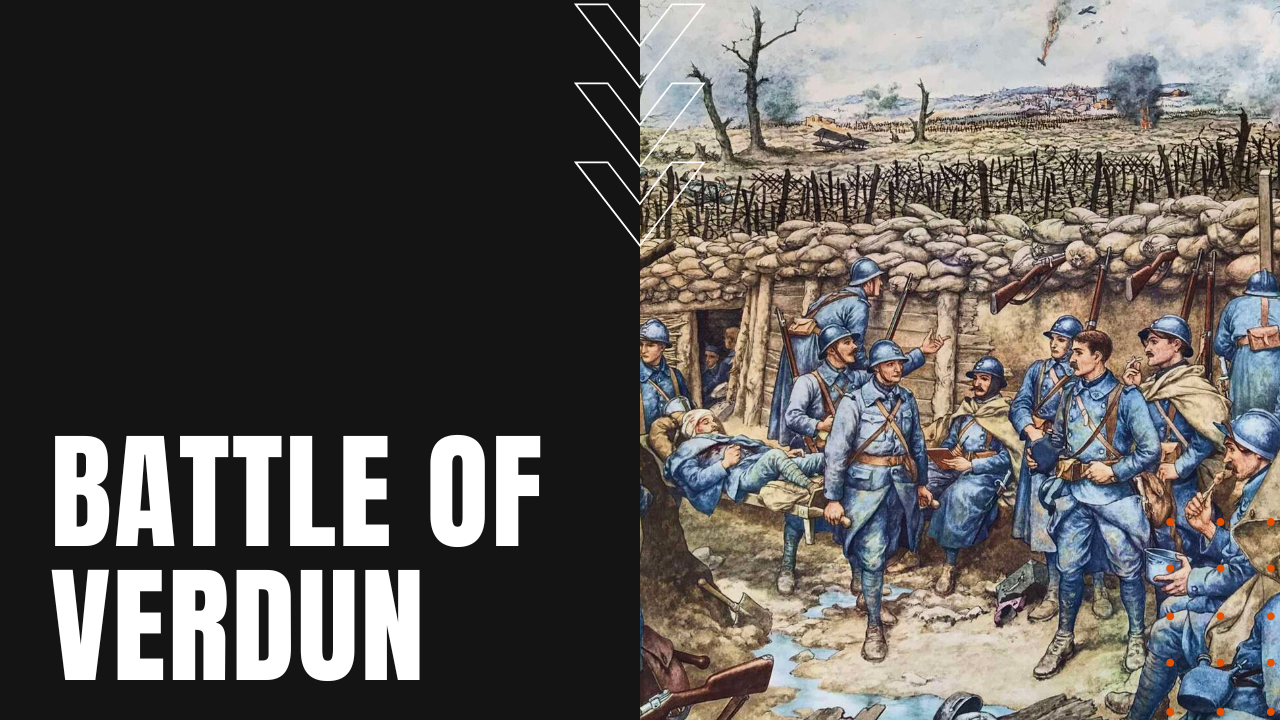Battle of Verdun: France Defends Against German Aggression in WWI

After Germany’s advance into France was halted at the First Battle of the Marne, in September of 1914, the Germans built fortifications to control lands already taken, while the French undertook a siege warfare stance intended to break through German lines and retake their land.
In a memorandum to Kaiser Wilhelm the 2nd in late 1915, German General Erich von Falkenhayn argued that the First World War could only be won by fighting a meat grinder war of attrition against France, inflicting such mass casualties that would sap the French will to fight, which in turn would force the British to sue for peace.
The Battle of Verdun
German war leaders chose Verdun as the ideal place to stick it to the French, a place steeped in the political history of France, as well as a geographic salient or bulge in the Western Front.
Largely unaware of Germany’s staggering buildup of men and war supplies, German bombardments began on February 21st, 1916, overrunning the under-defended French Fort Douaumont four days later. During the ten-month running standoff, the Germans launched some two million shells at Verdun during their opening round of bombardments—more than any other artillery assault in the previous history of warfare, eventually witnessing the exchange of 40 to 60 million shells by both armies before the blood bath had ended.
Germany controlled the skies during the early months of the battle, until the French assembled 226 biplanes into one of the earliest fighter squadrons in aviation history, including the storied escadrilles composed of mostly American pilots.
Before the shelling ended, the Battle of Verdun left nine French towns in total ruin.
Who Won the Battle of Verdun?
After months of standoffs and offensive campaigns by both sides, the French began their first and second Offensive battles from October 20th until their eventual victory on December 17th, when the French retook all lands they had lost to the Germans, in turn consolidating a new front line from Bezonvaux to Côte du Poivre.
The Battle of Verdun would last for a staggering 302 days of combat, making it the longest and one of the most costly battles in the history of human warfare, witnessing 377,000 casualties on either side, while a combined 305,000 troops were killed or missing by the end of the battle. For the French, anyway, the battle symbolized the determination of the French people, during the Allies long and bloody fight against German aggression.
